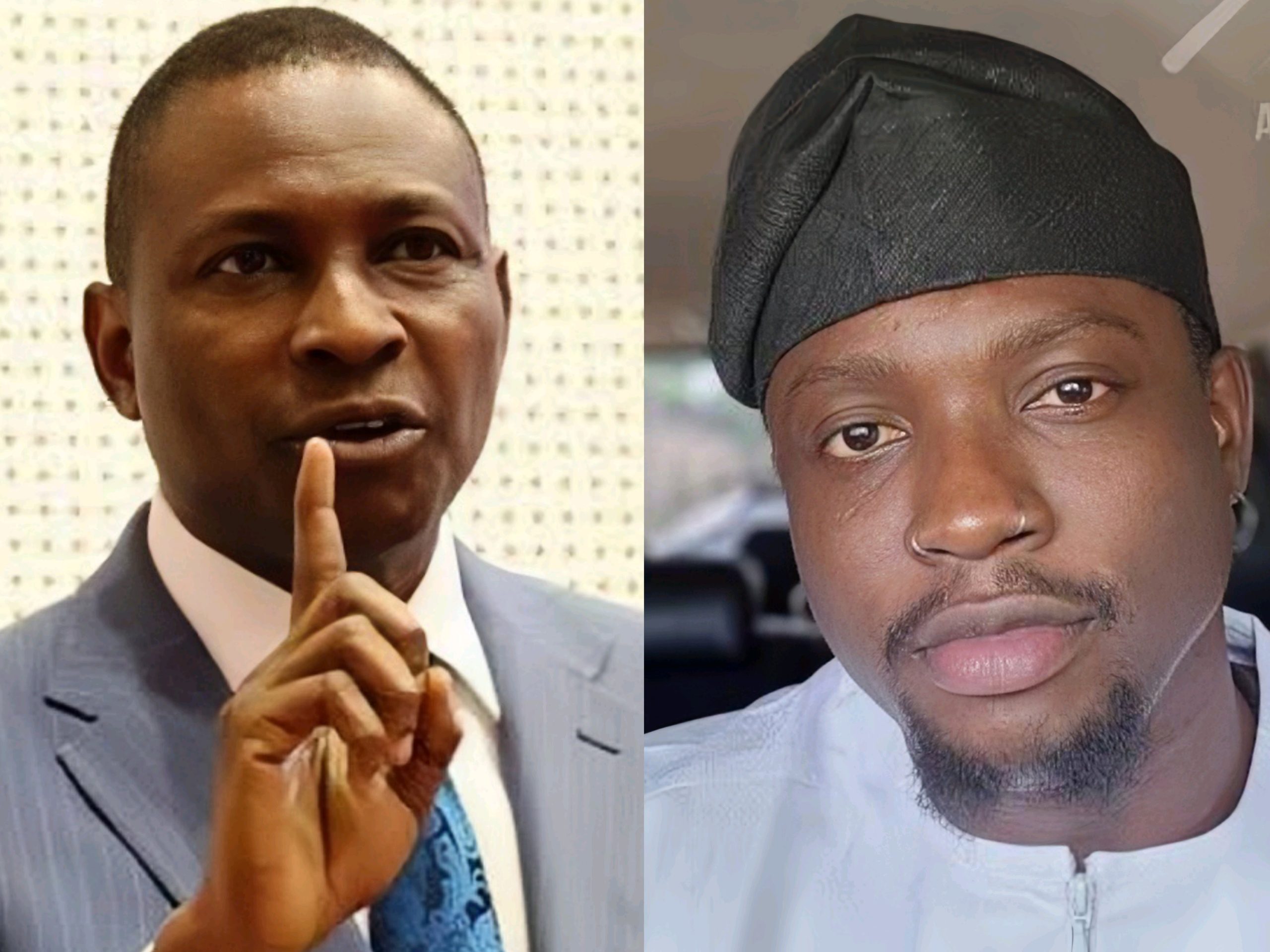Economic and Financial Crimes Commission (EFCC) Chairman Ola Olukoyede has defended the arrest of social media activist Martins Otse, popularly known as VeryDarkMan (VDM), questioning why his detention has generated national controversy when the anti-graft agency routinely arrests high-profile officials.
Speaking during an interview with TVC from 0:59, Olukoyede emphasized that the EFCC operates without regard to an individual’s social status or public following, citing the commission’s track record of investigating prominent political figures.
The EFCC boss revealed the scale of ongoing investigations under his leadership to underscore the agency’s comprehensive approach to tackling corruption. “Between the time I assumed office and now, we have opened over 5,000 case files. Over 5,000 case files for the high, the mighty, the middle class, the low, the poor, the rich,” Olukoyede stated.
He expressed puzzlement over the public attention surrounding VDM’s arrest, arguing that the activist should not receive special treatment compared to other high-profile suspects. “So, I don’t know why the issue of Vincent Otse, I don’t know why it has become a national issue, but I will give you a background to it,” the chairman said.
Olukoyede detailed the circumstances that led to VDM’s arrest, revealing that the commission had received multiple petitions against the activist and conducted a lengthy preliminary investigation before making the arrest. “We received about four petitions on that young man that were written against him, and for like 5 months, we have been carrying out our preliminary investigation without inviting him, knowing the kind of person he is out there, he has followers and all of that,” he explained.
The EFCC chairman emphasized that no individual, regardless of their public profile, stands above the law. “Even though, like I said, the law is not a respecter of anybody. if I can bring in former governors and ministers, people that are serving in the private sector and public sector, I don’t know what is special about VDM that we cannot bring in,” Olukoyede declared.
He explained that the decision to detain VDM was based on the complexity of the investigation and the need for thorough questioning. “So, based on that, and when we were through with our preliminary investigation and we felt he had questions to answer, we brought him in to have to answer questions, and when he got there, we had a legitimate court order to detain him, because there was no way we would have been through with the interrogation within a day. But there are so many legs to the investigation, and we granted him bail,” the chairman said.
Olukoyede confirmed that he personally directed VDM’s release on bail, emphasizing the agency’s fair treatment of the activist. “I directed that they should give him bail. The following day, he was given bail, and eventually, we released him after some days. But investigation still continues,” he stated.
The EFCC boss stressed that the investigation remains ongoing and that any final determination would be made based on evidence. “I don’t want to say much about that because we are investigating; if he has a case to answer in court, he’ll be made to answer a case in court, and if he doesn’t have a case to answer in court, so be it. But as I’m talking to you now, investigation is still ongoing, and there’s nothing special about his case,” Olukoyede said.
Despite VDM’s public criticisms of the EFCC following his release, Olukoyede maintained a measured tone, acknowledging the activist’s contradictory statements about the commission. “Even though, like you said, he went out and he’s talking, even though from both sides of the mouth, he wants to become EFCC’s friend at the same time he’s abusing EFCC. So, you see, but I don’t want to get carried away by all those rasmatas,” the chairman remarked.
Olukoyede concluded by expressing understanding for VDM’s passion while maintaining that the law must take its course. “I know he’s a young Nigerian who is zealous; I don’t have anything against him. But the fact remains, if there’s an offense, there’s an offense. If there are things for us to investigate, we need to investigate and come to a reasonable conclusion,” he stated.
Explore More News By Using The Button Below.

